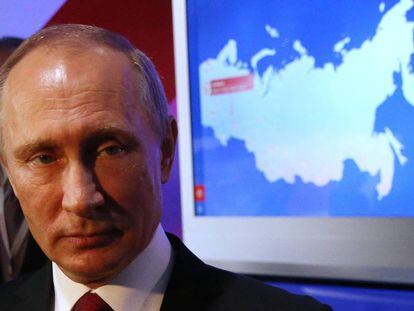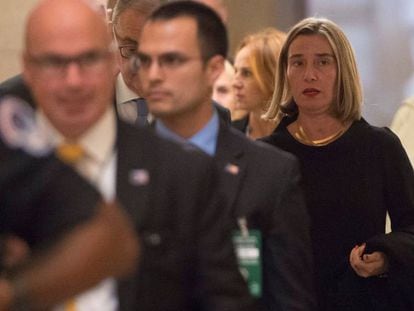Discrediting Europe
The European Union must take action in the light of Russian propaganda attacks against Spain

The intense campaign to discredit Europe by Russian media outlets with ties to the Kremlin has set its sights on Catalonia. The Moscow propaganda machine, which sides with separatism, is working hard on disseminating fake news stories in an effort to destabilize democracy and erode social harmony. Some of the malicious disinformation that has been circulating includes claims that “Spanish is already being taught as a foreign language in Catalonia,” or that “the Balearic Islands have joined demands for independence from Spain.”
To remain immobile before the Russian narrative about a Europe in decline could have irreparable consequences
Before Catalonia, the disturbing effects of Moscow’s meddling had become evident during the US election that gave the victory to Donald Trump, and during the Brexit campaign. The fake news amplified by online portals were equally felt in Germany and France, where they aimed to favor the far-right parties Alternative for Germany and Front National. They also played a decisive role during the Ukraine crisis and Russia’s annexation of Crimea. Just this week, the populist Russian politician Vladímir Zhirinovski, who headed a pro-Catalan independence march in front of the Spanish consulate in Moscow, sent out a very clear message: “The disintegration of Europe is beneficial to us.”
There is evidence of pro-Russian networks’ interest in Catalonia, as EL PAÍS reported this week: Catalonia-related stories sent out by these sources have grown from four a week to more than 200, according to a team of specialists created by the EU – and known as the East Stratcom Task Force – to detect and fight orchestrated attacks from outside the EU using the internet.
Brussels acknowledges the great job being done by this department, which answers to Federica Mogherini, the EU High Representative for Foreign Affairs and Security Policy, but officials complain about insufficient funds to do their work, particularly in view of the scope of this strategy of agitation and propaganda: eroding the EU’s democratic image and presenting it as a failed, authoritarian, nonviable project.
The disintegration of Europe is beneficial to us
Vladimir Zhirinovski
The EU is aware of the threat to Western democracies posed by these Russian-orchestrated moves. Now it must accept that neutralizing the lies currently infesting the digital world will also require more financial resources. It does not seem a judicious option to ignore all the malicious messages portraying Europe like a collection of states filled with fascists and xenophobes. To remain immobile before this Russian narrative about a Europe in decline could have irreparable consequences.
Along the same lines, it is equally necessary for the Spanish government and political parties to be aware of the damage done to our democracy’s image by the current dissemination of malicious and deceitful claims, whose sole purpose is to discredit Spain’s constitutional institutions. It is also necessary to launch a parliamentary inquiry to determine the scope of this interference, and decide on the most adequate measures to deal with it.
English version by Susana Urra.












































